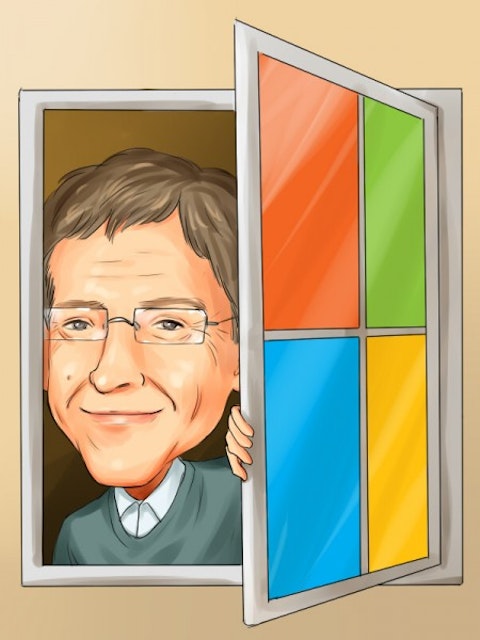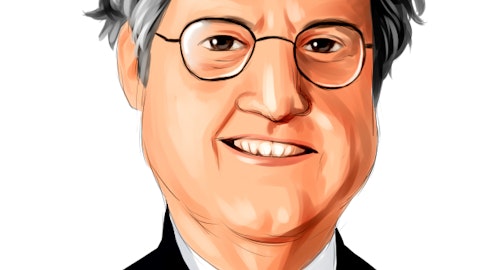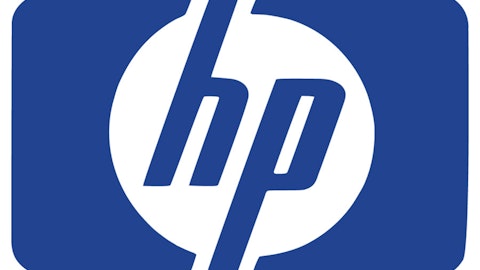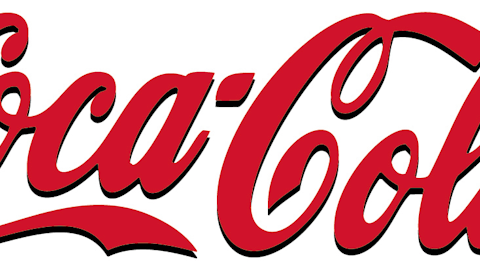Insiders usually buy stock in their own company because they expect the value of the company’s shares to move up. Acknowledging that insiders have access to the inside information and a thorough knowledge of their firms’ dynamics, one could be confident that insiders’ upbeat expectations will likely come to fruition. According to academic research on insider trading, mimicking insiders’ stock purchases historically managed to beat the market as much as 7 percentage points annually.
In this article we are going to take a look at two dividend stocks that have recent insider purchases and decide whether it makes sense to invest in them. We like dividend stocks because they pay investors while they wait for the stocks to appreciate.
Microsoft (MSFT) is a $252 billion company providing a range of software products and services, Internet services, and gaming products. The company pays a dividend yield of 2.7% on a payout ratio of 29%. The company’s peer Google (GOOG) does not pay any dividends, while Apple (AAPL) will initiate a dividend in its fiscal fourth quarter. Analysts forecast that Microsoft will grow its EPS at a nearly 10% annual rate for the next five years.
On May 8, one of the company’s director, Stephen J. Luczo, bought 16,000 shares at $30.72 a share. On June 4, he purchased another 17,500 shares at $28.72 a share. Microsoft shares are currently changing hands at $30.70 and are up 19% from the beginning of the year. Microsoft, Google, and Apple are the three most popular stocks among hedge funds (see the 10 most popular stocks among hedge funds).
Stephen Luczo’s total investment in Microsoft is worth around $4 million. This may seem like a large number to most investors but Luczo is the chairman and CEO of Seagate (STX) and his net worth is north of $100 million. His position in Microsoft may be small but he is very careful with his insider transactions. He has been exercising his options and selling his newly acquired holdings at prices above $17. He shrewdly suspended his transactions when Seagate fell below $10 last fall. That’s why we have confidence in his Microsoft purchases as well.
Microsoft is a value stock with single digit PE ratio excluding its cash holdings. Warren Buffett probably would have bought the stock if he wasn’t so close to Bill Gates (see Buffett’s stock picks). Investing in Microsoft won’t make you rich but we think it is definitely a better investment than long-term Treasuries.
Hewlett-Packard Company (HPQ) is a $43 billion company providing diversified computer systems, including computer products, technologies, software, solutions and services. The company pays a dividend yield of 2.4% on a payout ratio of 21%. The company’s peers International Business Machines (IBM) pays a dividend yield of 1.7%. Rivals Apple and Dell Inc. (DELL) will start dividend payouts; Apple’s dividend yield will be 1.9%, while Dell’s yield is projected at 2.7%. Hewlett-Packard is currently undergoing a major restructuring, which is expected to turn around the company in the near future. Analysts project that the company will expand its EPS at an average rate of 4.7% a year, much slower compared to the average annual growth rate over the past five years.
As regards insider trading activity, since May 25, there have been ten insider purchases. In five separate transactions between May 25 and June 1, one of the company’s Directors, Ralph V. Whitworth, acquired a total of some 18.2 million shares at an average price of the five transactions of $22.31 a share. On the other hand, another Director, Raymond J. Lane, purchased on five separate occasions a total of 226,300 shares at an average price of the three transactions of $21.95 a share. The company’s shares are currently trading at $21.14, down around 17% YTD.
Hewlett Packard is another tech stock that is shunned by investors. The rapid change in the PC industry is keeping retail investors away whereas hedge fund managers like Ralph Whitworth and Seth Klarman of The Baupost Group hold a large stake in the company (see Klarman’s top holdings). HPQ is a turnaround story and is considered a very risky investment at this point. However, the stock is on its way to make around $4 per share in 2012. This gives the stock a 2012 forward PE ratio of less than 5.5. We believe the downside is pretty limited at this point. The stock also yields 2.5%, so investors can afford to be patient with the management. Insiders and conservative hedge fund managers are confident about this investment. It isn’t going to be a smooth ride but Hewlett-Packard could return 50% over the next 24 months.






